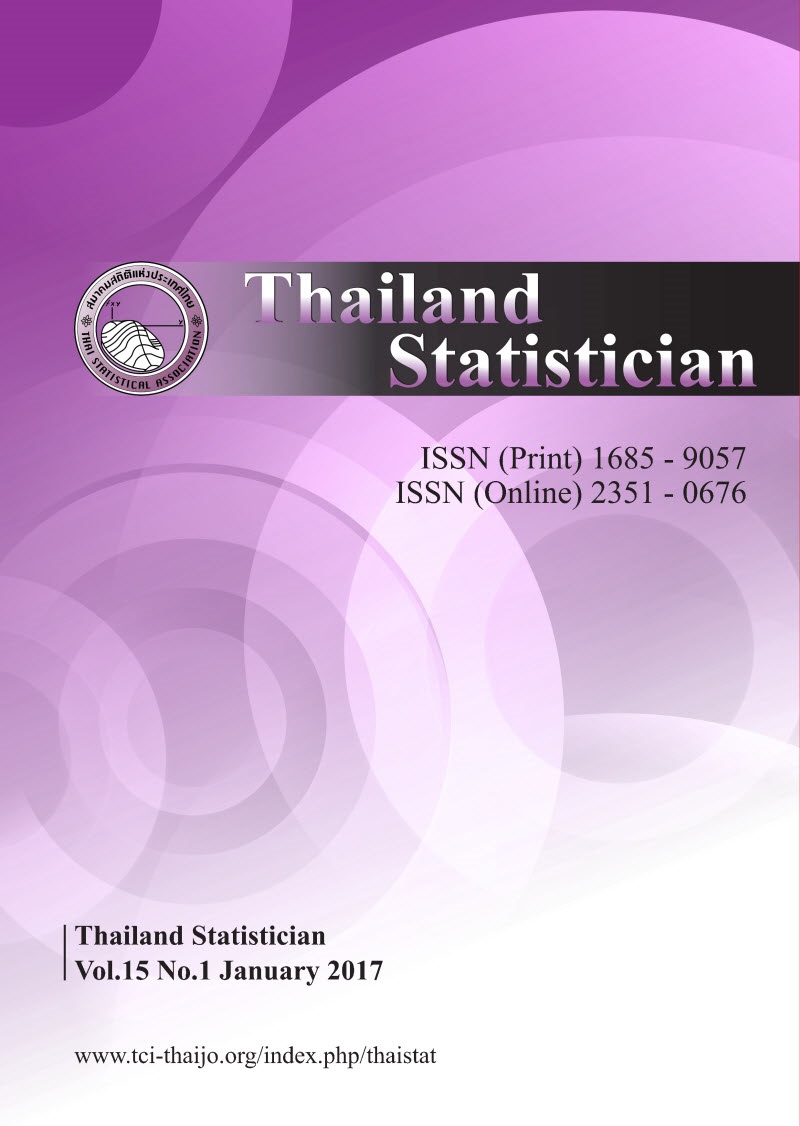A Comparison of Parameter Estimation Approaches for Generalized Linear Mixed Models with Correlated Ordinal Responses
Keywords:
Mixed-effects modeling, Cumulative logit models, Marginal model, Generalized Estimating Equations (GEEs), Marginal Quasi-Likelihood (MQL), Generalized Linear Mixed Models (GLMMs), Adaptive Gaussian Quadrature (AGQ), Penalized Quasi-Likelihood (PQL)Abstract
Parameter estimation approaches under random effects such as in Generalized Linear Mixed Models (GLMMs) for categorical responses are generally complicated, especially; those models with correlated ordinal response categories. Then, research and development in these areas are still currently interested. The objective of this research is to compare the parameter estimation approaches for GLMMs under cumulative logit models that based on both the fixed and random effects and that based on only fixed effects models (Generalized Linear Models (GLMs)) including marginal models by considering the bias, the mean square error, and the coverage from 1,000 datasets in each condition of sample size (number of clusters and cluster size) and the intra-cluster correlation. The GLMs are investigated for based comparative study approach using maximum likelihood or Fisher scoring. In marginal models, two approaches, Generalized Estimating Equation (GEE) and Marginal Quasi-Likelihood (MQL) are performed. In random effects models, we use mixed effects such that GLMMS models which corresponding the two approaches: Penalized Quasi-Likelihood (PQL) and Adaptive Gaussian Quadrature (AGQ) are investigated. These models are distinguished in the form of cumulative logit models. The results from every condition of sample sizes and intra-cluster correlations, strongly indicate that for the marginal model, the better approach is MQL compared to the GEE, as the intra-cluster correlation is medium and large. By contrast, they give approximately the same results as that of the ML when the intra-cluster correlation is small. For the random effects model, the AGQ is better than the PQL. In conclusion, the AGQ is the best when it is compared with all the others. Moreover, as the number of cluster and the cluster size are increased, the accuracy of parameter estimates is much improved. However, the increasing of the intra-cluster correlation affects the GEE and the MQL estimates. But, such impact is only little for the AGQ and the PQL estimates.Downloads
How to Cite
Phonork, C., & Pongsapukdee, V. (2015). A Comparison of Parameter Estimation Approaches for Generalized Linear Mixed Models with Correlated Ordinal Responses. Thailand Statistician, 10(1), 1–14. retrieved from https://ph02.tci-thaijo.org/index.php/thaistat/article/view/34225
Issue
Section
Articles




